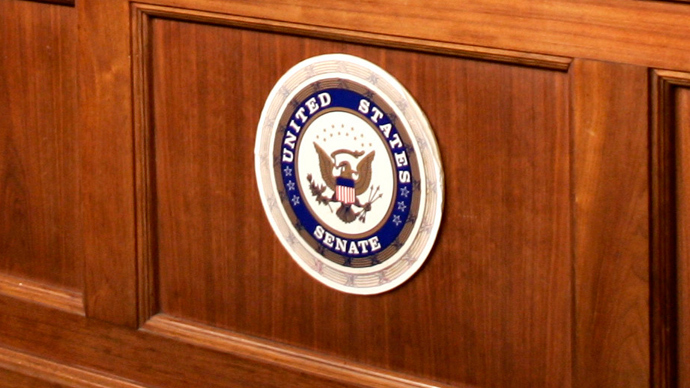‘No European data to the US without our approval’

The Americans have to learn that a mutual exchange of data is one of the first steps to having a normal relationship between the EU and the United States, argues Wim van de Camp, Dutch Christian-Democrat leader.
Outrage is spreading across the European Union following
revelations that the US National Security Agency has been
collecting private communications around the world, possibly
complicating US-EU relations as US President Barack Obama
prepares a visit to Germany.
RT:So data about potential security threats - but is
it possible they're using it for clandestine information
gathering here - like economic secrets?
WC: That’s the real problem. At this moment we don’t know
exactly what the Americans are doing with our data, and
especially with our privacy data. And I think they are
exaggerating a little bit in their security policy. If they want
the data of American citizens, for me that’s ok. But no European
data without our approval. It is very strange that you collect
data – especially from European citizens – and that at the end
nobody is responsible for that collection of data. So at least
the United States and President Obama have to make it clear to
the European Union what they are doing with this data, how do
they (store) it and for how long? And what is the purpose of its
collection?
RT:Is there anything that the EU can actually do to
protect its privacy?
WC: I think so. We are on many issues at this moment and
negotiating with the Americans, especially on the PNR – personal
name record for the air companies – and of course we are also
busy with the free trade agreement between the EU and the United
States, and I think both issues can be coupled to this Prism
issue. So the Americans, I think, have to learn that a mutual
exchange of data is one of the first steps to having a normal
relationship between the EU and the United States.
RT:But this kind of thing's been going on for decades-
there's nothing new here apart from technology, surely everyone's
at it?
WC: Yes, but that’s a rather strange opinion because if
you are doing things wrong for ten years, it doesn’t give them
legitimacy, and I think we have to correct this. The European
citizens have to be protected from foreign secret services.
RT:We keep hearing a lot that if you've nothing to hide,
you've got nothing to worry about. But that's correct isn't?
WC:You know, that’s a very strange principle in data
protection and privacy protection. Of course people are happier
when they don’t have to hide something, but in general the
European governments and also the European Union they have to
protect their citizens from foreign secret services outside of
the European Union. One of the principles in this governmental
policy is that the citizens are protected, and not only by the
sentence: “If you have nothing to hide, there is no problem.”
The statements, views and opinions expressed in this column are solely those of the author and do not necessarily represent those of RT.












